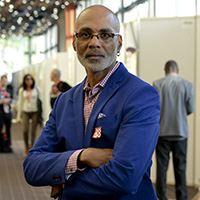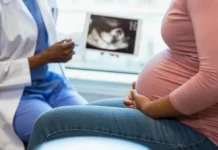
A conversation with the Black AIDS Institute’s president and chief executive officer.
By Tamara Holmes
BAI Contributing Writer
BAI Daily: Where are we in the HIV/AIDS epidemic as we participate in the 2016 International AIDS Conference?
Phill Wilson: We have a good-news, bad-news scenario when it comes to HIV in the United States. The good news is that in 2016, you can’t deny that we’ve made progress, and you can’t deny that there’s a promise out there of what is possible regarding prevention and treatment. The bad news is that there’s not really any clear indication that we are going to actualize that promise. People confuse the possibility with the achievement of it. New tools exist that can potentially end the epidemic, but people get it twisted—they think having the capacity is the same as doing it.You have to stay in the game until you have actually done it.
BAID: What are some of the barriers to achieving an end to the epidemic?
PW: A percentage of folks think it’s already done. A percentage of folks aren’t even aware of the possibility. They’re not aware of the new technology and the new tools and the different ways that we can prevent HIV. There are folks who are working in HIV who don’t have the skills and the knowledge they need to implement these new technologies and use these new tools.
Then you have some communities that are taking advantage of the tools to great results, and some communities that aren’t. These tools could reduce the HIV/AIDS disparities between Black communities and other racial and ethnic groups. But what I fear is that they’re not going to reduce them; they’re going to actually exacerbate them, because when one community has access and utilizes the resources and another community either doesn’t have access or doesn’t utilize the tools, it exacerbates the disparity. We’re already seeing that Black communities and Latino communities are not benefiting from the new positive breakthroughs as much as White communities are.
BAID: What is the bigger problem: the lack of knowledge and literacy about the science of prevention and treatment or not having access to that information?
PW: There are people who died in the desert just feet away from the oasis because they didn’t know the oasis was there. So access is important, but access without awareness is not sufficient.
Of course, awareness without access is not sufficient, either, so it’s not an either-or; it really is an and-and-both. We’re comfortable talking about the lack of access. That is a familiar narrative, and that is a part of this narrative, but it’s not the only narrative. What we’re trying to do is expand the narrative so that we can see and respond to all of the threats.
The balance between awareness and understanding and between science literacy and access is different from region to region. For example, access is a much larger challenge in Southern states that have not expanded Medicaid, and that translates into a huge issue for Black communities. Fifty-four percent of all Black Americans live in the South. Black people account for 20 percent of the population of the South, and we represent 62 percent of new infections in the South.
BAID: How can the International AIDS Conference help when it comes to those challenges?
PW: Part of the challenge that we’re facing today is that HIV has fallen off the radar. We no longer know that the problem exists. What I hope the International AIDS Conference in Durban, South Africa, will do is provide an opportunity for us to shine the spotlight on the AIDS epidemic in Black communities again.
I’m hoping there will be excitement about the meeting being in South Africa. I think that there are going to be opportunities to showcase some lessons learned in Africa and, by showcasing those lessons learned, an opportunity for us to showcase, quite frankly, the lessons that need to be learned in dealing with the Black community in the U.S.
I’m hoping we can utilize that awareness to raise science and treatment literacy in Black communities in the U.S. so we can use that awareness and remind Black communities that this is a winnable battle. Then we want to lay out how the battle can be won and what role each of us needs to play to win.















